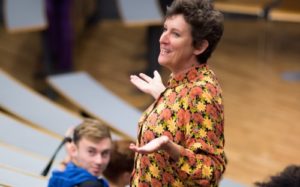Sussex University has been ranked first in the world for development studies, according to the respected QS University Rankings 2017.
It is the third year running that Sussex has been in the top two globally for development.
The university said: “The result reflects the quality, impact and range of international development research and courses offered across the Sussex campus in the University of Sussex’s School of Global Studies and its partner, the Institute of Development Studies (IDS), as well as the Department of Economics, the Science Policy Research Unit (SPRU) and the Centre for International Education (CIE).”
School of Global Studies head Andrea Cornwall said: “Sussex’s world-leading reputation for international development gives us much to celebrate.
“It’s thanks to the concentration of expertise that spans the university and brings us together with our close colleagues and partners, the Institute of Development Studies.
“Our critical, engaged research on the global issues of our times infuses our teaching in the School of Global Studies from our undergraduate programmes in international development to a dynamic portfolio of postgraduate degrees that include long-standing and new cross-campus collaborations with IDS, Economics, SPRU, CIE and Brighton and Sussex Medical School.
“We’re really pleased to be recognised in this way.”

IDS director Melissa Leach said: “We’re delighted that development studies at Sussex that includes IDS’s postgraduate teaching programme has been ranked first in the world once again.
“This has been made possible by the strength of the partnerships across Sussex-based institutes and schools.
“Together we are delivering world-class research and evidence on tackling some of the world’s most pressing challenges as well as nurturing the next generation of global leaders.”
Sussex University vice-chancellor Adam Tickell said: “Sussex has become the most important institution in the world for international development over recent decades.
“Our work is reshaping how governments, aid organisations and NGOs (non-governmental organisations) address the major issues of our time.”

Sussex offers eight undergraduate courses and more than 30 masters courses with a development focus.
The university added: “Graduates have gone on to take up senior positions in global organisations such as the World Bank and the United Nations as well as to become ministers and officials in national governments across the world.
“Sussex degrees are taught by some of the world’s leading development experts, many of whom are active in the field as researchers and practitioners and who bring this valuable experience of applied research into the classroom.
“The ground-breaking evidence and knowledge that Sussex researchers are generating in collaboration with partners globally is making a significant contribution to real-world problems such as disease, climate change and conflict and violence.
“For example, in 2016 staff from the University of Sussex and IDS were part of a team that won the prestigious Economic and Social Research Council (ESRC) Outstanding International Impact Prize for helping to improve the effectiveness of the global response to the ebola outbreak and ultimately bringing an end to the disease more quickly and saving lives.”
The university is in the world’s top 100 universities for six other subjects in the latest rankings. They are








